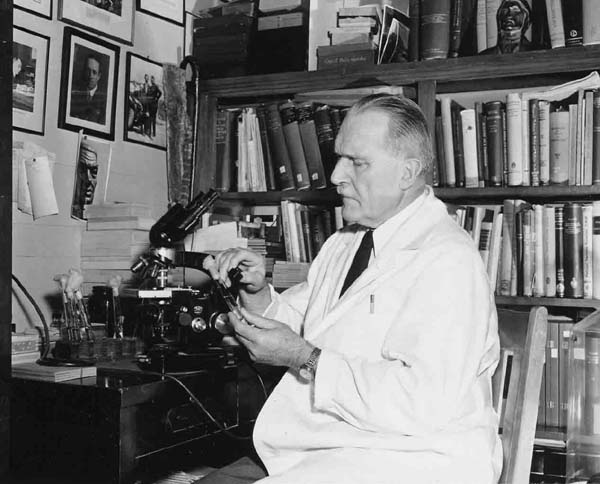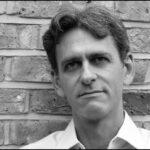Join us on Friday, December 5th as Mark Honigsbaum, PhD, gives a lecture in a series launched by UCSF Archives & Special Collections.
Date: Friday, December 5th, 2014
Time: 12 pm-1:20 pm
Location: Lange Room, UCSF Library, 530 Parnassus, 5th floor
This lecture is free and open to the public. Light refreshments provided.
Please RSVP to reserve a seat.
In the 1930s California’s rapid population growth and the incursion of agricultural settlers into valleys and deserts teeming with exotic pathogens resulted in outbreaks of ‘new’ infectious diseases. To divine the cause of these outbreaks and trace the epidemics to their source, health officials turned to San Francisco’s premier ‘microbe hunter,’ Karl Friedrich Meyer.
All but forgotten today, Meyer was once a nationwide figure renowned for his feats of disease detection. As director of the George Williams Hooper Foundation for Medical Research at UCSF in the 1920s, Meyer – a Swiss-born veterinarian and bacteriologist – spearheaded investigations into botulism, mussel poisoning, and brucellosis. By the 1930s he focused increasingly on parasitic diseases of birds and other animals.
These included ‘parrot fever,’ a deadly disease caused by a bacterium in parakeet droppings, and ‘staggers’ (equine encephalitis), a viral disease of horses spread by mosquitoes that bred in irrigation ditches. Most famously, they also included outbreaks of ‘sylvatic’ plague along the California-Oregon border – outbreaks that Meyer traced to migrations of squirrels and other flea-infested rodents. What linked these outbreaks is that, one way or another, they were all ‘man-made’ – the result of human interference with animal ecologies.
Drawing on Meyer’s papers at the UCSF and Bancroft libraries, this talk reviews Meyer’s feats of microbial detection and his pioneering investigations of disease ecology. Dr. Honigsbaum views Meyer as an important bridge figure in mid-20th century medical research who sought to link microbial behavior to broader environmental and social factors that impact host-pathogen interactions and the mechanisms of disease control.
Mark Honigsbaum, PhD, is a medical historian and journalist with wide-ranging interests encompassing health, science, technology and contemporary culture. A specialist in the history of epidemics and pandemics, he is the author of four books, including The Fever Trail: In Search of the Cure for Malaria and A History of the Great Influenza Pandemics: Death, Panic, and Hysteria, 1830-1920. He is currently working on a history disease ecology as a Wellcome Research Fellow at Queen Mary University of London.
About the UCSF Archives & Special Collections Lecture Series
UCSF Archives & Special Collections launched this lecture series to introduce a wider community to treasures and collections from its holdings, to provide an opportunity for researchers to discuss how they use this material, and to celebrate clinicians, scientists, and health care professionals who donated their papers to the archives.



K..F. is not entirely forgotten. The research laboratories in the Hooper Foundation are named for him, as prominently displayed at the facility. In addiont, there is an annual lectureship bearing his name at UCSF, funded by the Hooper Foundation. I expect to be at Dr. Honigsbaum lecture.
J. Michael Bishop
Director, G. W. Hooper Research Foundation
University Professor
Chancellor Emeritus
UCSF